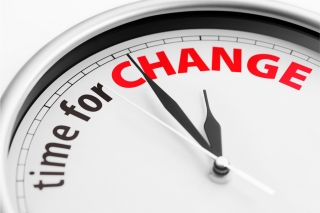
Discovering a Willingness to Motivate and Change
31 January 2024Engaging in different actions to enhance student learning. Are you ready for it?
By Warren Leigh, culinary professor, cater, consultant and retired restaurant operator
Feedback & comments: This email address is being protected from spambots. You need JavaScript enabled to view it.
I wrote a story last month focusing on instructors becoming the facilitators of the knowledge transfer process. I offered that this should be the mission statement of culinary teachers. In practice, it means we enhance learning and help students retain culinary material, concepts and skills. The next logical step is making a change in the way we teach.
This change is necessary because the skills required to be a great teacher have changed as culinary students have changed. I believe we cannot continue to teach as we have always taught.
Common starting point and willingness to change
The ability to change is unnatural for some instructors as their ingrained habits and strong convictions make them less willing to consider new ideas. Working with colleagues resistant to changing the enhancement of learning creates questions such as:
How do we create a culture of change?
How can we engage our colleagues in change?
How does motivation factor in?
I am not sure about the answers to these questions. But it’s worth considering how they play out in our institution. I do think the teaching staff can begin at a central point of agreement: We are facilitators of the transfer of knowledge. Then, a discussion can begin on how we should do that. The first logical step is identifying how learners receive, understand, memorize and recall information. If students aren’t learning or engaging in this process, then a key to changing this is determining students’ learning styles. How are you doing at that?
(Editor’s note: Click here to read a story in this month’s Gold Medal Classroom edition, “Deciphering Learning Styles and Unlocking Education,” by culinary instructor Dr. Jennifer Denlinger.)
Making connections and determining motivation
Teachers must connect with students to learn what motivates them in order to understand a student’s/learner’s learning style. Our students' learning styles are so different and each student/learner is so unique that it cannot be a “one size fits all” teaching strategy.
Student demographics are ever changing as are the skills they possess when they come to us. It is a very personal process of making connections with students to understand their backgrounds and skill sets. However, once we begin to unlock the student we can begin to read and understand their motivation. With this new information, we are better equipped to meet and successfully engage, adjust, plan and teach people. We can overcome students’ initial challenges to the learning process.
Personally, I do not think educators actually do this well. I have found some educators do not fully recognize how their backgrounds inform their teaching styles. I believe we must recognize this and figure out how to change ourselves so that we can better facilitate the transfer of knowledge. Understanding that learning is a continuous cycle and self-reflection is important to that cycle is paramount for both the student and instructor.
With this in mind, we can learn how to do things differently than we have been doing for a long time. We have the ability to learn new ways to meet and connect with our students.
Food for thought
I think of this discussion as food for thought and hopefully, this will lead readers down the path of self-reflection and change. Are you willing to self-assess and accept feedback? Are you willing to make changes in your teaching/facilitating? Are you willing to engage in improving the transfer of knowledge/learning on behalf of the students and learners?
Questions for discussion on social media
Join the conversation. These questions are posted on CAFE's Instagram and Facebook sites. Visit the channel and record your answers. Learn what culinary instructors are engaging in to create success in the face of change, connection and motivation. Comments will be shared in the March Gold Medal Classroom edition.
1. How do you create a culture of change in your program?
2. How can you engage your colleagues in change?
3. What tactics do you use to connect with students and has it changed?
4. What tactics do you use to motivate students and has it changed?
